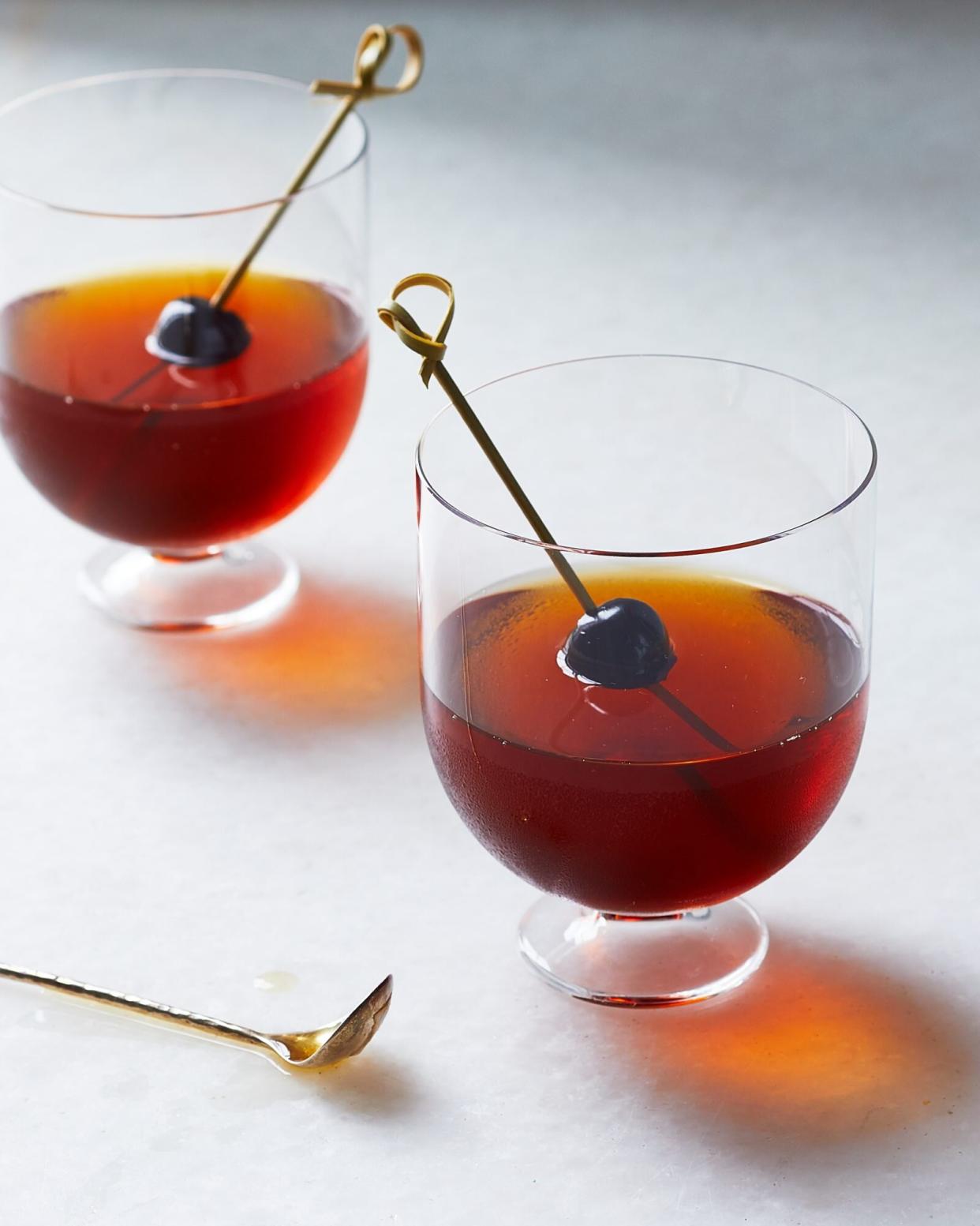All About Cocktails—Including the Essentials You Need to Mix Up the Tastiest Drinks

Bryan Gardner
You know you like to drink one before dinner (or with) and that it's best enjoyed ice cold, but how much do you really know about the cocktail? Booze comes in many forms—wine, beer, and spirits—but what makes something a cocktail and can you have it before 5 p.m.? We won't answer that second question for you (no judgment here), but here's what we can tell you about the cocktail and what it means.
Basic Definition
In its simplest form, a cocktail is a drink that mixes several ingredients, at least one of which is alcoholic, into one complete drink. The simplest cocktails contain just a few ingredients, while more complicated ones can have upwards of six or seven ingredients. Some definitions say a cocktail must have a spirit and a fruit juice. Others define a cocktail as following a formula of a sugar, a bitter, and a spirit. If a cocktail doesn't have alcohol in it, it's usually referred to as a "mocktail" or "non-alcoholic cocktail."
Related: Easy Cocktail Recipes You Can Make with Just Three Ingredients
A lot of people use the phrase "mixed drink" interchangeably with "cocktail." But while a mixed drink also contains at least two beverages combined, none of the ingredients need to be alcoholic. So while a cocktail is a type of mixed drink, not all mixed drinks are cocktails. Confusingly, some people define a mixed drink as something that only contains alcohol, while a cocktail has other ingredients added. According to this definition, a martini is a mixed drink and not a cocktail, since it only contains alcoholic beverages. Still others say a mixed drink only contains two ingredients, one of which is alcoholic, like a gin and tonic, while a cocktail has three or more ingredients. Colloquially though, you'll find most people use "mixed drink" and "cocktail" interchangeably.
Cocktail Building Blocks
Typically, the base spirit of a cocktail is either vodka, gin, tequila, rum, whiskey, or brandy. Usually only one is used as the main base with the largest amount, but some cocktails use more than one spirit as the base.
The modifier, or body of the cocktail, works to enhance the base and hold the whole drink together. Modifiers include Champagne, vermouth, cream, and juice.
The final component of a cocktail is the perfume, which is typically added in the smallest amount and is something like bitters, liqueur, fruit, syrup, or even coffee, which enhances the base.
History of the Cocktail
The word cocktail, according to the Oxford English Dictionary, was first mentioned in print in 1803 and first defined in print in 1806, where it was described as a stimulating liquor comprised of spirits of any kind, with sugar, water, and bitters. We know cocktails existed before then, in the 17th and 18th centuries, under names like fizzes, juleps, and slings. Jerry Thomas, a bartender who worked across the U.S. and Europe and owned bars in New York City, wrote the first book of cocktail recipes in 1862, called How to Mix Drinks or The Bartender's Guide, and is credited with mainstreaming cocktails. From there, many other bartenders evolved the genre, and the cocktail survived prohibition and much more to endure as a favorite way to imbibe.
Types of Cocktails
Cocktails can be divided into groups by their base spirit (vodka, gin, whiskey, tequila, brandy, and rum), or they might be divided into classic types that include the fizz, sling, margarita, spritz, highball, daiquiri, old fashioned, flip, julep, sidecar, and martini. There are thousands and thousands of cocktail recipes, and there are constantly new cocktails being invented.

